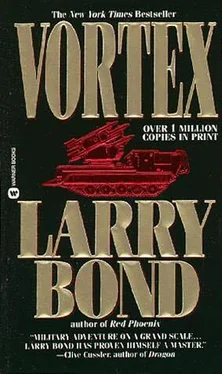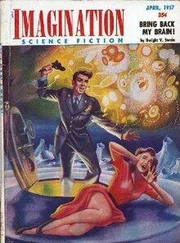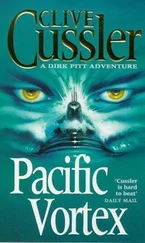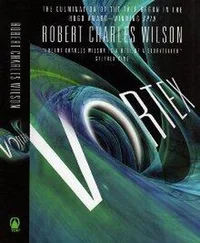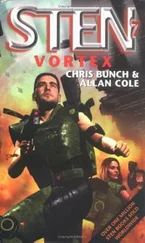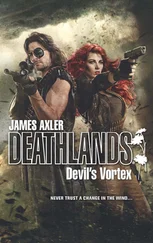A low whistle broke across all the activity. The assorted technicians, officers, and enlisted men scattered through the chamber turned to see a short, bowlegged Army sergeant major waving them out.
“Meeting’s on, gents.
Secure the room.
In the sudden exodus, pen flashlights, tech manuals, tools, and reams of paper were all left lying in place. They’d be needed again once the politicos and higher brass were done jawing at each other.
Flanked by his military aide and civilian chief of staff, Forrester entered at a fast walk-his hair still windblown after a wild, rain-drenched helicopter landing outside the Pentagon. Shrugging off his wet overcoat, he moved to the spot marked for him at the conference table. He nodded once to red-eyed Edward Hurley, plainly weary after a long, sleepless night spent monitoring developments, and took his seat.
All conversation around the T-shaped table died away.
Forrester glanced to either side, unsurprised to see that the Crisis
Group’s membership had expanded overnight to include the Joint Chiefs, the CIA director, the secretaries of defense, treasury, and commerce, and a small army of high ranking assistants. So much for the original idea of a small, manageable group. Washington’s political and military leaders were drawn to international crises like moths to a flame.
He rapped once on the table.
“I’ll make this short and sweet. I met with the President this morning.”
Everyone at the table opened notebooks and grabbed pens. Guidance from the Man would make their task a lot clearer. Not easier-jUSt. clearer.
Forrester paused briefly before plowing straight ahead.
“The President has decided to authorize direct American intervention in southern Africa.
Direct military intervention. “
He raised his voice, overriding the surprised murmuring coming from around the table.
“We have three objectives: One, bouncing Vorster and his goons out of power. Two, preventing Cuba from gaining control over
South Africa’s strategic minerals. Third, and most important, securing world access to those resources by restoring some kind of civil order over there.” He glanced at the wall clock showing local time It was already ten forty-five A.M.
“The President’s scheduled a full cabinet meeting for seven o’clock tonight. He wants our recommendations and preliminary plans by then.”
:,
“Good God. Christopher Nicholson broke the stunned
silence. The CIA director had been fiddling uneasily with the cap of one of his pens, pulling it off and pushing it back on.
“Mr. Vice President, we are still gathering information on the invasion, on Cuban intentions and capabilities. We don’t know how many troops are involved, we don’t know where they are located. We can’t possibly act without a better idea-“
“I’m sorry, Chris, but we can’t wait for you to produce some glossy intelligence product.” Forrester’s tone combined urgency and impatience.
“We just don’t have time to dot every i and cross every t. Hell, you’ve all seen the financial news this morning.”
Most of the men and women around the table nodded grimly. The world financial markets were in an uproar. Prices for South African-produced minerals were skyrocketing. Gold alone was trading at more than a thousand dollars an ounce. The New York, Tokyo, London, and other stock markets were all in sustained free-fall. Several governments had shut down their exchanges in a frantic effort to slow the collapse.
Commentators and self-proclaimed economic experts were openly predicting a new world recession. Others were using the word depression.
Forrester looked down the row of stunned faces.
“We simply don’t have any choice, folks. The President wants a solid plan he can present to the nation by this time tomorrow morning. Not a ‘spin’ and not a ‘slant.”
“
He nodded toward the one lit display screen-a map showing the known war zones in Namibia and South Africa.
“The world’s too small a place for this kind of crap.”
More nods. This wasn’t America’s first reminder that the nominal end of the Cold War hadn’t automatically ushered in a millennial age of peace and prosperity.
Forrester turned toward the Air Force general sitting to his left.
“Walt, the President has one key question he needs answered right away. Can the
Cubans win if we don’t intervene?”
The chairman of the Joint Chiefs didn’t hesitate.
“Yes.”
The civilians around the table were openly surprised by Hickman’s blunt answer. Senior military officials, like their civilian counterparts, tended to be more comfortable with carefully hedged assessments.
Nicholson spoke up first.
“How can you be so sure, General? My analysts estimate that the total Cuban attack force is still smaller than the whole South African army. They’re outnumbered by at least two to one. How can Castro hope to beat those kind of odds?”
Hickman shook his head impatiently.
“The overall numbers don’t matter worth a damn, Director. What counts is combat power on the front line.
And right now the front lines are in South Africa itself-not Namibia.
Cuba’s probably got a ten-to-one force ratio there.”
He left the conference table and moved to the display screen.
“Look here.
Half of Vorster’s reliable troops are dangling out here in Namibia-more than a thousand miles away from the real action. Most of the rest are scattered around in penny packets, chasing down black guerrillas and rebel commandos.” He faced Forrester directly.
“So the question is, can
Pretoria shift its heavy armor and infantry units out of Namibia fast enough?”
Hickman shook his head again, answering his own question.
“I doubt it.”
He traced a sparse network of red and black lines shown on the flickering display map.
“South Africa’s road and rail net is just too limited. Plus,
Cuban MiGs have achieved almost total air superiority. They can pound the hell out of troop trains or truck convoys moving by day.”
1, SoT I
“So South Africa’s troops are going to arrive piecemeal -if at all.
They’ll slow the Cubans down some, maybe even a lot, but they’re not going to stop them. Not short of Pretoria anyway. And they’ll be cut to pieces in the process.”
Hickman stalked back to his seat in the silence that followed.
Nicholson cleared his throat.
“I still believe we should offer the
President some alternative to an ill-conceived and unilateral commitment of U.S. forces.”
Forrester stopped him there.
“Hold on, Chris. The British have agreed to send troops as well.”
“Are their troops going to stop every bullet the South Africans or Cubans fire, Mr. Vice President?” Nicholson shot back.
“We’re talking about going to war against a country that has more than a hundred thousand men under arms -a country that’s already at war with Cuba and itself. This isn’t going to be a walk in the park. We’re talking about a casualty list that could run into the thousands.”
Forrester’s eyes narrowed at the unsubtle dig, but he kept his temper under control. Beneath all his bluster, the CIA chief spoke for a sizable fraction of the cabinet, the Congress, and the American people. Nobody wanted to rush into another bloody, unwinnable quagmire like Vietnam.
“The alternative to military action is another Great Depression-tens of millions of people out of work, hunger, riots.
“Neither the President nor I claim to be infallible, Director. Do you see an option we’ve overlooked?”
“Yes. Why not press for action by the UN Security Council instead. Get a resolution calling on all parties to withdraw to”
Читать дальше
